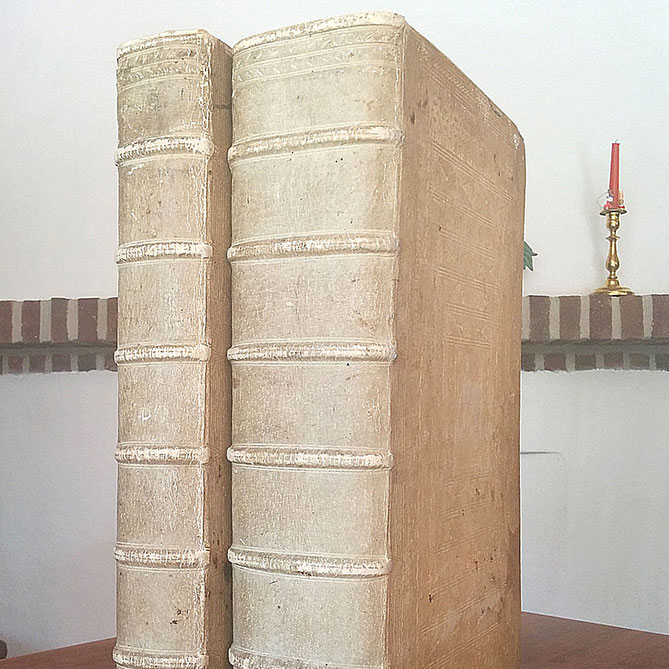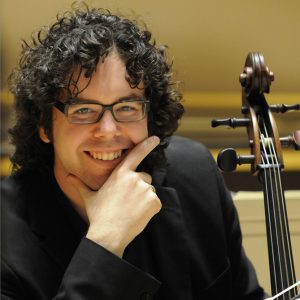
A Return to “What Makes a Baroque Cellist”: a Slight Digression about Textbooks (Part 1)
Guy Fishman
My recent posts about “How to Play the Baroque Cello” were brought about by earlier posts in which I attempted to answer the question, “What Makes a Baroque Cellist.” I spent almost as much time contemplating my difficulty in answering this very interesting question as I have finally trying to answer it. Undoubtedly, there are concrete topics that may make up an answer, and I have tried and will continue to discuss these. But my struggle was palpable. That may be because, despite what we all know, see, and hear, ultimately there may not be such a thing as a “baroque cellist,” nor did such a person ever exist. Not now, nor in 1697 or 1732, nor at any other time. And this is because there may not have ever been a “baroque period.”
“WHAT DID HE SAY?!?!” you ask. Your incredulity is understandable, so I’ll attempt an explanation. I’ll start at the University-level music history classroom. Many of us first encounter a music history textbook here, during our Freshman year. These textbooks are wonderful, not least because they save a lot of research time and travel dollars. If you determine to study the history of music—as you should—you can painstakingly acquire a deep and thorough knowledge of several European languages in their modern and ancient permutations; travel to innumerable libraries, churches, and private collections housed largely on the European continent and on the British Isles; and spend hundreds of hours searching for, locating, and absorbing thousands of primary, secondary, and tertiary sources that pertain to your studies.
Or, you can buy a textbook, like those by Donald Jay Grout or K. Marie Stolba, for instance. They and others like them serve as an initiation into the music making of yesteryear, and into the life and work of those individuals who form the pillars or our Art. This is all incredibly convenient, and provides an immense service to the budding musician.
But as expeditious to the attainment of knowledge—as well as of a Bachelor of Music degree—as a textbook is, this tool is also something of a double-edged sword. Textbooks, or rather the professors who assign and reference them, seek and often succeed in deepening our appreciation of both the distant and near past, and whetting our appetite for further learning. But the books also present a picture of music history that is wholly inaccurate. It’s akin to a great Renaissance painting depicting several separate events, one alongside another, in chronological order, as in Michaelangelo’s famous ceiling of the Sistine Chapel. “This happened at this point. Then this happened. It was followed by this. After which this, too, happened.” Or, in music history, “Way back when, we had the Greeks, but we don’t know much about their music. Fast forward to 711, the North-African Moors invade Spain, and all this happens as a result. Around 1100, two guys in France start polyphony. Then come the Dark Ages, after which we have the Renaissance. In 1600, that’s all over and the Baroque period starts. It ends with the death of Johann Sebastian Bach, and gives way to The Enlightenment.” And so on.
I imagine that Grout, Stolba, and most other historians would counter that their comprehensive, artful, and skilled achievements are a matter of extreme necessity. I would agree, despite my good-natured parody in the aforementioned oversimplification of over two thousand years of music-making. Three credit hours in each of eight semesters are simply not enough to examine the numerous angles in each of thousands of potential topics. As we are almost through with 2014, think of how many books could be written on each of the developments and happenings in each of the various global genres of music that are being nurtured every day, and how many years could be spent discussing those books. I could likely have spent my entire sophomore year discussing the year 1720. Instead, the whole of the so-called Baroque period was examined in less than a semester.
Why “so-called?” I’ll tell you what I think next week.
Subjects: Baroque, Historical
Tags: Baroque, cellobello, CelloBlog, Grout, Guy Fishman, history, Michaelangelo, Stolba, Textbooks, Western Music
